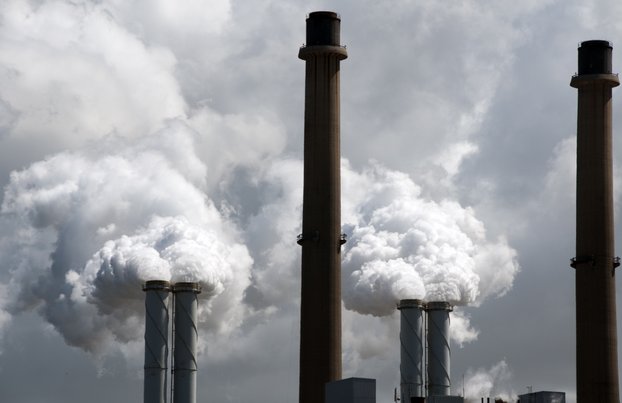Taking stock of Obama's climate plan

Global Warming
US President Barack Obama’s recently-unveiled Climate Action Plan has provoked strong reactions in America; though it’s generally agreed the changes will have worldwide reverberations. Some of KTH’s experts on sustainable energy have their say on why that is – and why you should care.
Hope and change

Sverker Sörlin, Professor of Environmental History: "By far the most important impact of President Obama's announcement is the signal effect. What the US does is to mainstream things. The message has already sent a wave of reactions around the world, and the response is largely positive, especially in Asia where the Chinese government has signalled more ambitious policies as well. In fact, it seems to work just as many social scientists have predicted it would, namely that others will follow if the US takes the lead -- and few would act if the biggest global emitter (the United States) sits idle, especially if per capita-emissions are weighed in.
"The reaction in Europe is, perhaps predictably, less overwhelming. Europe has already committed to more reductions than most other regions and that includes Sweden. But here too there seems to be a nod of acknowledgement, at least, and clearly a boost to optimism. Nonetheless, it has been said both in Europe and in the US that the announced cap is nowhere near what is needed; and of course the high level of protest in the US private sector is extremely worrying.
"One is tempted to quote Churchill: 'This is not the end, not even the beginning of the end ...' But perhaps it is the start of the necessary transition. As a historian, I prefer to wait with a final judgment. But we should sense some hope here.
One small step …

Staffan Laestadius, Professor of Industrial Dynamics: With one of the highest per capita emissions in the world, the US is – and has been – a laggard as regards climate change mitigation. And even though the rapid growth of shale gas production in the short term may contribute to a decrease of CO2 emissions compared to using coal, this transformation is far from radical enough to handle climate change.
Nevertheless the recent Obama proposal must be looked upon as an important – although small – step in the right direction. First, domestically, Obama shows the general public that the US government is seriously worried. That has rhetorical effects. That is, irrespective of the magnitude of the action, the Obama proposal becomes a core issue in the political debate.
"Secondly, he shows other laggard and large scale emitters – like China – that the US is on the move. That may have impact on China which competes with the US on global leadership. This can be a start on a path dependent climate walk towards decreasing greenhouse gas emissions.
"Thirdly, the US step may have an impact on the EU which has lost some of its initial momentum on world leadership in climate change mitigation. This may inject new blood into the sleeping European mitigation discussions.
"Fourthly, the Obama initiative may send signals to those international companies that have neglected the need for transformation away from our global addiction to carbon. This is a pedagogical task. Firms, as well as people, have to prepare for change. Obama´s proposal is far from enough. But it is an important step taken by the right actor at a time which is late, but when there are still opportunities left."
Nordic examples could guide

Amy Rader Olsson, Director, KTH Center for a Sustainable Built Environment: "Inasmuch as the policy can support a larger market for renewables (and less coal, particularly soft coal), it may turn attention to successful examples of low carbon energy generation such as in Sweden and the Nordic countries. Just as important, it may increase interest in Swedish competence in energy transmission management, energy efficient use and/or storage issues.
"It could in the short term create perverse incentives to squeeze all possible profit out of existing plants that could become obsolete or too expensive to retrofit. In other words, minimise maintenance or improvements and use them to the fullest possible capacity before they are forced to close. I don’t know enough about Swedish and Nordic energy markets to speculate on effects here however.
"The Obama emissions plan also could help reawaken important discussions and debate in Sweden regarding low-carbon (but non-renewable) alternatives, such as nuclear, with their own sets of pluses and minuses. And it could be used as an argument both for—and against—continued or expanded use of these generation sources.
"Sweden can also offer an interesting perspective on the effects of major structural transformations in the economy. Those against Obama’s proposal/the EPA recommendations have argued that it will slow the economy and that thousands will lose their jobs. Many will lose their jobs, and the spatial and socioeconomic distribution of winners and losers will almost certainly be uneven, but the relevant issue is whether or not the policy will also create new jobs and new markets, and whether or not there are measures in place to help displaced people find other work or at least survive in the interim."
Time for action

Göran Finnveden, Professor of Environmental Strategic Analysis and Vice President for Sustainable Development: "It is important that the US has political leadership that recognises the social and economic impacts of climate change and understands science. The recent announcements are in line with previous commitments on reducing greenhouse gases. It is also important that they will at the same time reduce emissions of other air pollutants such as particulates, nitrogen oxides and sulfur oxides, and therefore significantly reduce the health impacts from these.
"The US is making commitments in order for other countries to also step up. The pledges to reduce emissions that have been made by different countries must be followed up with concrete policy initiatives that ensure the reductions are actually made.
"At the same time, it important to note that the pledges made so far would not reduce emissions enough to reach the so-called 2-degree target."
Incentive for energy efficiency

Semida Silveira, Professor in Energy Systems Planning; Head of division, Energy and Climate Studies (ECS); Deputy Head, Department of Energy Technology: "The recently-announced push for climate policy in the US is a very welcome initiative which can have an impact worldwide. For a long time, the US has been reluctant to implement major policies and measures to reduce greenhouse gas emissions. This has led to a lot of criticism – particularly in the EU.
"The US is putting together a Climate Action Plan that has a strong emphasis on energy efficiency, which is very interesting. More recently, the US is trying to boost the cap and trade system to reduce carbon emissions from coal plants. The cap and trade system is not new to US industries. Actually, it was created in the 70s with the Clean Air Act by Republicans to put caps on other pollutants. It is now time to set caps on carbon.
"Internally, Obama is facing a lot of criticism but the cap and trade system is considered a flexible mechanism when it comes to resource allocation and cost minimisation. In the face of a cap, the price of carbon will increase in the short term. This will provide incentive to improve energy efficiency and invest in new technologies, for example.
"An increase in carbon prices is needed to continue the development towards renewable energy systems not only in the US but worldwide. With caps in place, it will be interesting to link regionally separated carbon markets, for example, the US and EU markets, forming global carbon markets. This shall have a significant impact for the much needed emissions reductions in the world."
David Callahan
Read the Obama Administration’s Climate Action Plan .
For more information:
- Staffan Laestadius: 08 - 790 67 46 / staffan.laestadius@indek.kth.se
- Göran Finnveden: 08 - 790 73 18 / goran.finnveden@abe.kth.se
- Amy Rader Olsson: 08 - 790 79 13 / amy.olsson@abe.kth.se
- Semida Silveira: 08 - 790 74 69 / semida.silveira@energy.kth.se
- Sverker Sörlin: 070 - 545 25 26 / sorlin@kth.se